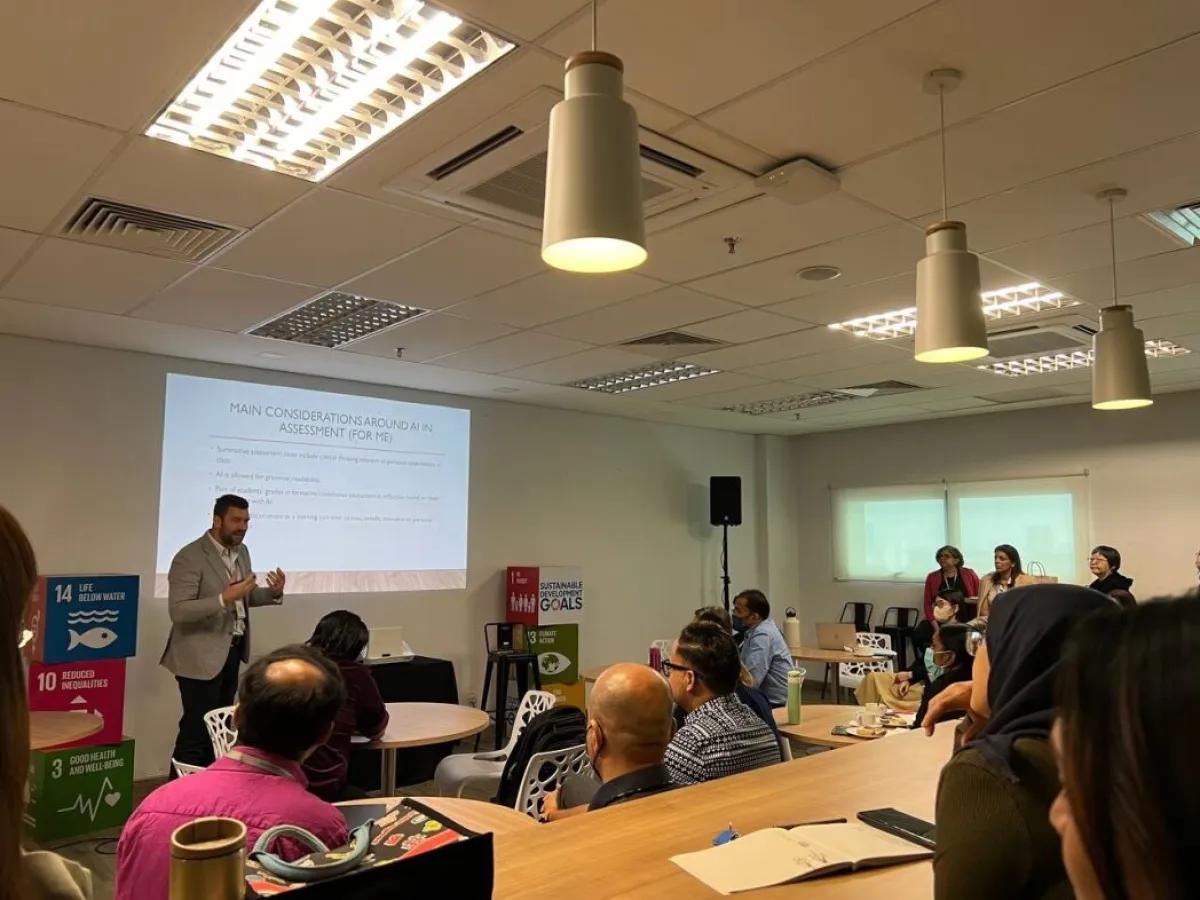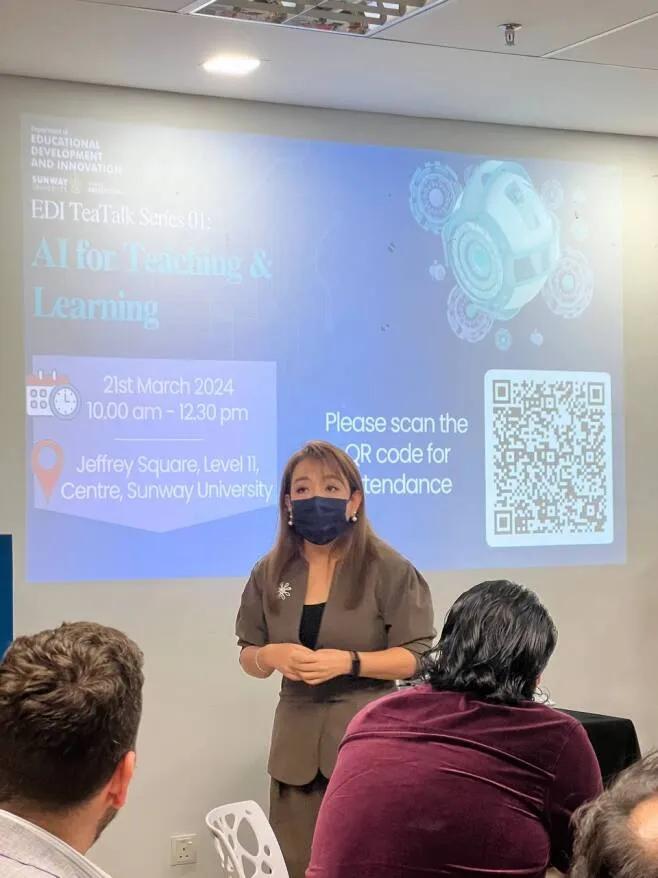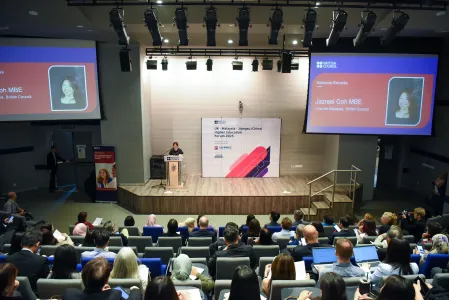EDI Tea Talk: AI for Engaged Learning
By now, most academics in higher education have experienced firsthand or been exposed to the potential benefits of AI in education. These benefits include personalising learning journeys for students, increased engagement and the implementation of more meaningful assessments.
However, integrating AI into the classroom may present unique challenges that must be carefully navigated. The high demand for learning and networking opportunities in this area is evident. In 2023, the 3 AI training sessions offered by EDI were fully subscribed. Additionally, data from the 2024 Professional Development Needs Analysis Survey revealed that 116 out of 168 academics who responded requested support in using AI for active learning activities. Addressing this need, EDI’s Tea Talk Series provides a platform for sharing practical applications of AI integration in a casual, collaborative setting.
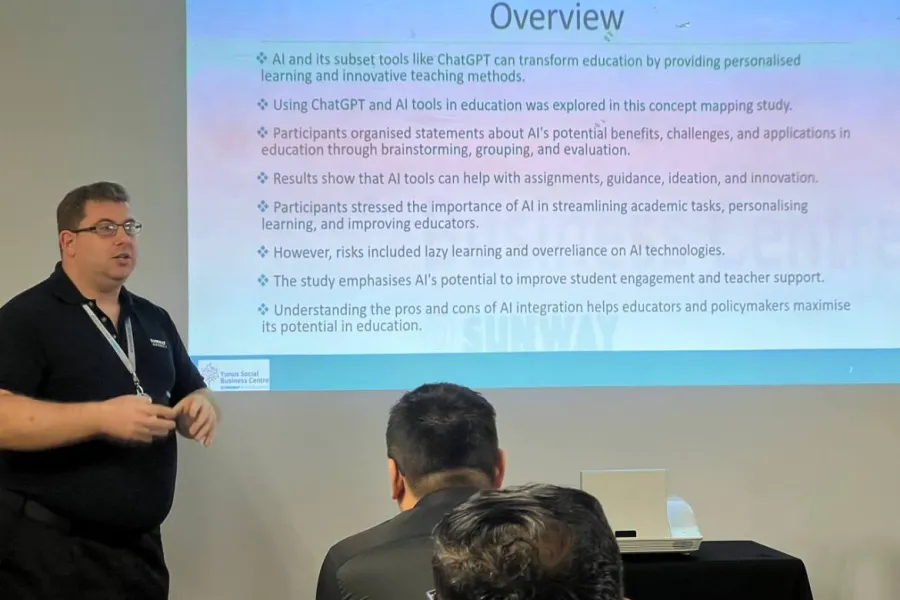
Dr Stephen Homer
Dr Stephen Homer (Sunway Business School) shared his research on students’ perspectives on the use of AI in education, identifying important ideas that emerged and the lessons to be learned from them. He also emphasised the importance of ensuring that students don’t over-rely on AI and the need to avoid “lazy learning”.
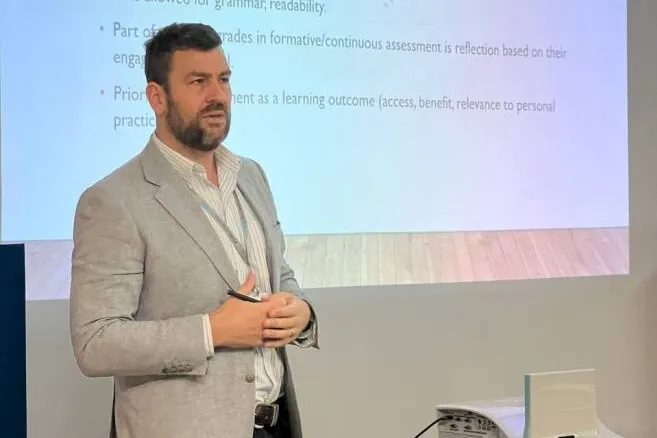
Associate Professor Dr Tom Pierard
Associate Professor Dr Tom Pierard (School of Arts) discussed his use of ChatGPT as a virtual assistant to facilitate meaningful student interactions and provide real-time, personalised feedback throughout their learning journey. He explained how careful planning and integration of AI tools can lead to deeper student engagement and subject understanding.
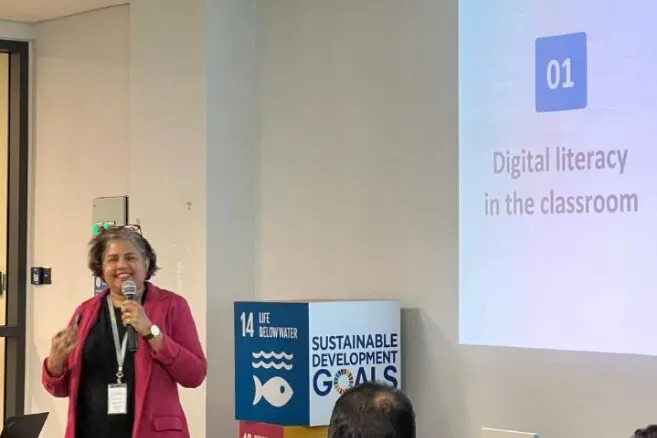
Dr Sally Anne Malar
Dr Sally Anne Malar (Centre for English Language Studies) shared her experience adopting AI-assisted ArcGIS Story Maps for students’ projects. She highlighted the benefits of this approach in promoting student-centred learning, which resulted in high-quality projects.
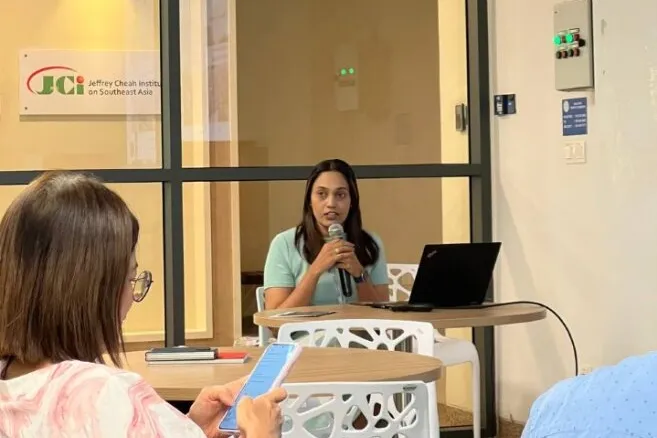
Dr Bawani Lelchumanan
Dr Bawani Lelchumanan (Sunway Business School) shared the recent updates on Padlet, with its recent integration of AI features in Padlet. She provided practical suggestions and examples from her own practice on how AI has further enhanced Padlet's efficiency in supporting group work, ideation, and student interaction.


